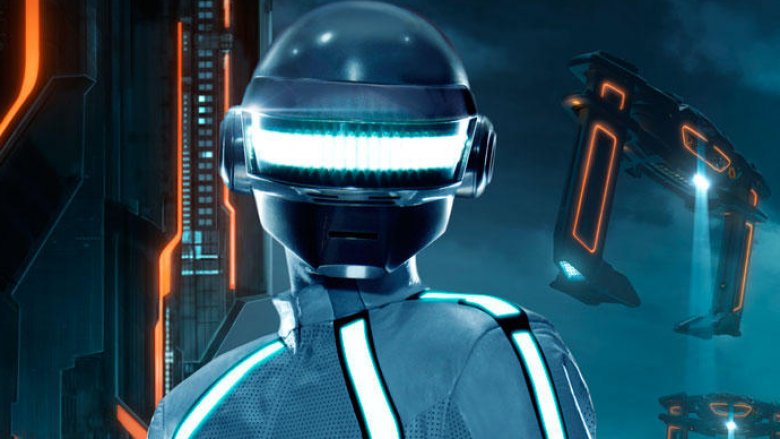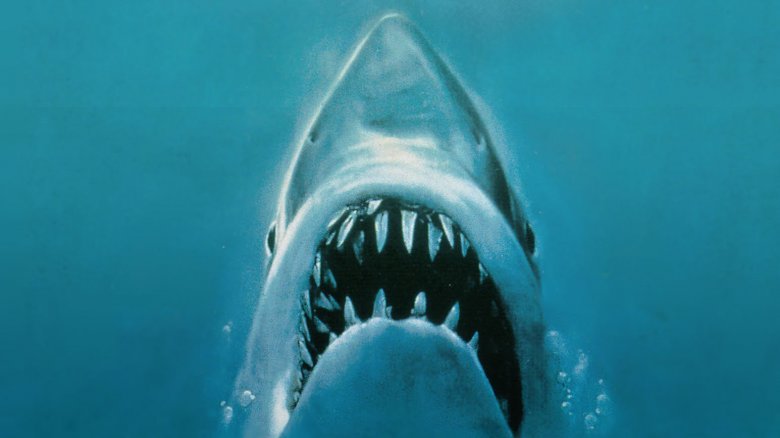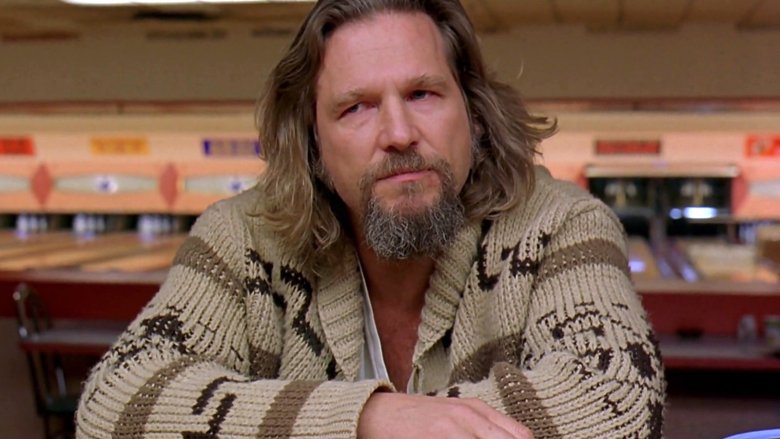The Bizarre True Stories Of How These Theme Songs Were Made
The soundtrack is the skeleton on which the meat of a movie hangs. It's often overlooked, but still of vital importance—and a surprising amount of work goes into picking the right song or sound to suit a scene. Here are some of the more bizarre stories about how famous songs and soundtracks ended up in your favorite movies and shows.
Steven Spielberg thought the Jaws theme was a joke
With two notes and a couple of weeks of prep time, composer John Williams did what it took evolution 180 million years to accomplish by making sharks absolutely terrifying. Now used as a stock audio cue to suggest impending doom, the Jaws theme is one of the most iconic in cinema. Weird, then, that director Steven Spielberg laughed it off at first.
The story goes that Spielberg originally wanted a soundtrack reminiscent of old swashbuckler movies for Jaws, and was so taken aback by Williams' more minimalist take that he initially dismissed it as a joke. Williams explained to Spielberg that that the theme was designed to feel like it was "grinding away at you, just as a shark would do, instinctual, relentless, unstoppable." Spielberg, having no reason to doubt Williams' skill and likely all kinds of impressed by that explanation, went with Williams' idea. The rest is instantly memorable history.
The theme song to Frasier is intentionally confusing
Frasier ends with one of the most infuriatingly obtuse theme songs in television history. Centering around a lyrical hook about "tossed salad and scrambled eggs," the jazzy number has long perplexed fans who've wondered what exactly the lyrics mean—if anything.
According to composer Bruce Miller, this was kind of the point: lyricist Darryl Phinnesse supposedly went out of his way to make sure the song never mentioned or alluded to anything in the show. Instead, the lyrics are intended to be a subtle nod to Frasier's career as a radio psychiatrist with "tossed salad and scrambled eggs" being his patients, who are as mixed up as that combo of foodstuffs. Likewise, the line "the blues a-callin" is a nod to the depressed people who often called in to Frasier's show.
James Cameron didn't want Titanic to have a theme song
Titanic is synonymous with the Celine Dion mega-hit song "My Heart Will Go On." It's hard to imagine either the song or the movie without the other. Which is odd, because originally, director James Cameron was insistent that the movie would never have a theme song—so much so, in fact, that when studio execs brought it up, he once quipped, "Would you put a song at the end of Schindler's List?"
Mainly due to the considerable investment they'd made in the film, 20th Century Fox persisted and repeatedly made it known that they felt the movie needed a song they could package and sell as part of the soundtrack. Without Cameron's knowledge, "My Heart Will Go On" was written, recorded and slipped into a screening; after seeing the emotional impact the song had on people in the audience, Cameron's stance softened and he admitted the film benefited from its theme.
Daft Punk dressed like robots to negotiate scoring Tron: Legacy
Tron: Legacy is, depending on who you ask, either a pretty average movie that was too aggressively marketed by Disney or the second most ambitious Daft Punk music video ever made after Interstella 5555. Fans of the original Tron, the members of Daft Punk intentionally strayed away from their usual musical comfort zone to incorporate symphonic elements into the soundtrack, as they felt synthesizers simply couldn't properly or accurately realize what they wanted to accomplish.
Despite the duo's eventual commitment to the film and respect and love for the the original, director Joseph Kosinski would later note that getting them on board was difficult because they were on tour when he first tried to contact them. When the director did manage to convince the duo to meet up to discuss their potential involvement, they turned up in the guise of their robot personas. Fitting, but definitely strange.
A guy waived a $150,000 fee for a song to appear in the Big Lebowski
Whenever you hear a song in a film, at some point, major money probably changed hands. An apparent exception to this is Townes Van Zandt's cover of "Dead Flowers" by the Rolling Stones, which plays over the credits of The Big Lebowski. The Stones are obviously one of the biggest bands in the world, and have been for decades, but the filmmakers were allowed to use the track for free.
The story goes that the rights holder for the song, former Rolling Stones manager Allen Klein, offered to license it for $150,000. Not wanting to shell out this much money for a single song but also feeling like it was the best fit for the credits, producers invited Klein to watch an advance cut of the film in the hopes he'd lower his asking price.
Luckily for the producers, Klein did like Lebowski—in particular a scene in which the Dude tells a cab driver "I hate the f***in' Eagles," A line that reportedly made Klein laugh so hard he agreed to waive the fee entirely.
Mike Myers almost quit Wayne's World over Bohemian Rhapsody
According to Mike Myers, when he originally pitched the idea of the head-banging scene in Wayne's World, the studio came back with a single suggested change: the guys should be listening to Guns N' Roses—who were infinitely more popular at the time—instead of Queen. Myers countered by saying that "Bohemian Rhapsody" was a masterpiece and that he absolutely wouldn't budge, going as far to threaten walking away from the whole project if the studio didn't yield.
The studio eventually relented and let them use the song, which not only sparked a massive resurgence of interest in Queen's music, but also gave frontman Freddie Mercury some much-needed laughter. Mercury was literally on his deathbed when the film was being made—he died just a few months after it was released—so Myers sent him an advance cut of the scene to look over. According to Queen guitarist Brian May, Mercury found it hilarious, giving Myers his personal approval on its inclusion in the film.
Jack Black begged Led Zeppelin to use one of their songs in School of Rock
For many years, Led Zeppelin were notoriously fickle when it came to letting people use their music. The makers of the 2003 film School of Rock knew this, and hatched a rather novel idea to encourage the members of the band to let them license "Immigrant Song": they filmed star Jack Black begging them while a massive crowd of paid extras cheered along.
The risky gambit actually paid off, and the band gave permission. Then again, it's not like they really had a choice—it would have made them look kind of bad if they'd said no to a group of children and a giant man-child quite literally begging to use their song in a film celebrating a genre of music they helped define.
Kenny Loggins recorded Danger Zone because of a need for speed
"Danger Zone" is one of Kenny Loggins' biggest hits, but the Top Gun soundtrack anthem was originally written for Bryan Adams. Adams reportedly found the movie so offensively pro-military that he dropped out of the project entirely, even refusing to allow another of his songs to be used on the soundtrack.
Loggins had his own reservations about recording the song, but they were a little more practical—he apparently just wanted to know if it was uptempo. At the time, Loggins felt his concerts needed, in his own words, "some rock and roll," and was eager for a faster-paced hit to liven up his set list. Between "Danger Zone" and his other hit from the soundtrack, "Playing with the Boys," Top Gun ended up giving him two.
The lyrics to the MASH theme were written by a teen
According to those involved with the production of MASH, director Robert Altman had only two stipulations for the theme song to the film: it had to be called "Suicide Is Painless," and it had to be "the stupidest song ever written."
Composer Johnny Mandel found this latter stipulation rather difficult to adhere to, struggling with writing the lyrics for, depending on who you ask, days or weeks. Realizing that writing "the stupidest thing ever" was beyond his skill as a lyricist, Mandel decided to outsource the writing to a person to whom he felt being stupid would come naturally—his 14-year-old son Mike, who was evidently the expert on stupidity his father had assumed, and wrote the lyrics in five minutes.
The Joker's theme from The Dark Knight was made with razor blades
Heath Ledger's portrayal of the Joker in The Dark Knight rightly stands as one of the all-time best-received interpretations of the character. Although Ledger undoubtedly deserves the lion's share of the credit for his masterful portrayal of the clown prince of crime, composer Hans Zimmer's theme for the character also deserves a nod for adding to his impact.
Aptly titled "Why So Serious?," the Joker's theme is a minimalist piece largely played on stringed instruments and the piano. Wanting to give the piece a grating, almost tortured sound reminiscent of the Joker's psyche, Zimmer instructed his orchestra to play the song normally while someone in the background rubbed a razor blade along a piano wire—the idea being that the entire piece would basically boil down to the orchestra "sawing away at a single note" much the same way the Joker attempts to to doggedly grind away Batman's morality throughout the film.


